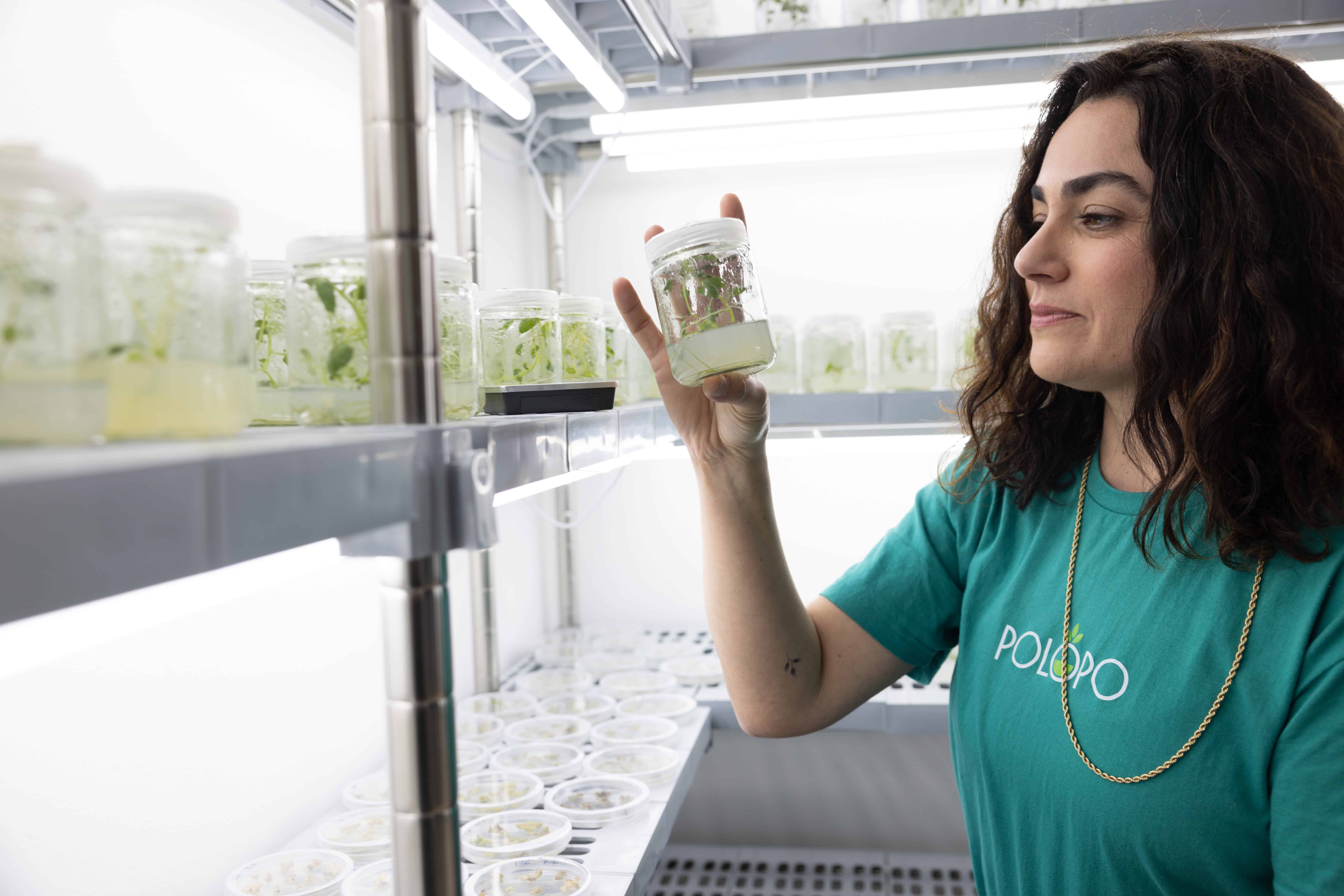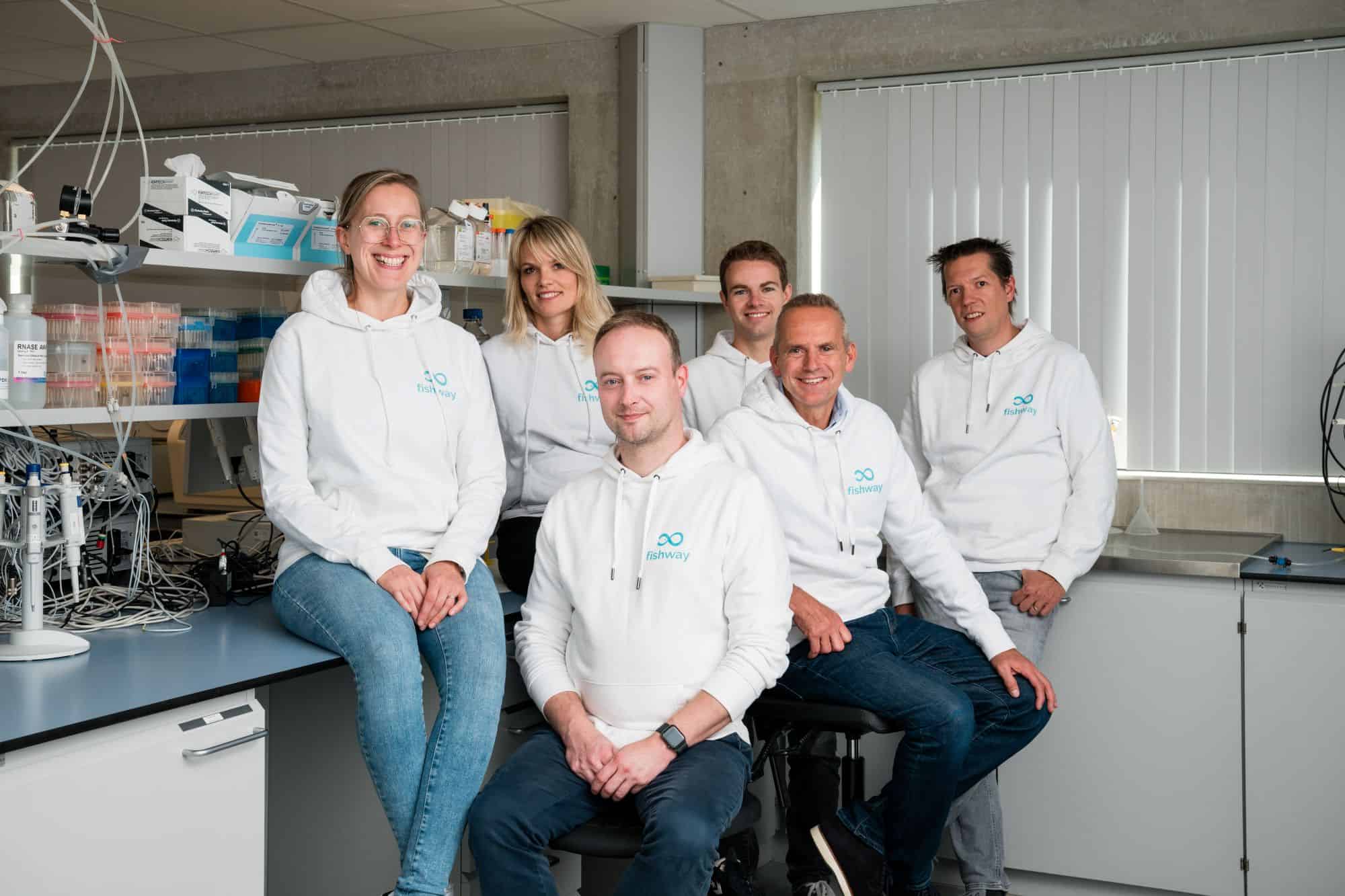Molecular farming startup PoLoPo has transitioned from greenhouse-scale production to large-scale field cultivation of genetically modified potatoes engineered to produce high levels of protein, including ovalbumin, a key component of egg protein. This move increases the company’s production capacity from tens of kilograms to an estimated three tons per harvest.
“To move from the lab to the greenhouse and now to field-growing has been exhilarating”
PoLoPo’s protein-producing potato plants are part of the company’s proprietary approach to molecular farming. The plants are engineered through metabolic engineering techniques to produce and store proteins in their tubers. These proteins are then extracted and dried into functional protein powders for use in various applications, including food production.
The potatoes, now being grown in fields located in the Eshkol region of southern Israel, are expected to yield three tons of product by spring 2025. This represents a substantial scale-up from their previous greenhouse trials, which produced only small quantities. The field trials are part of PoLoPo’s ongoing efforts to assess and improve the efficacy of its protein-producing potatoes and ensure the reliability and scalability of its technology.

Key objectives for field trials
The company’s primary goals for these field trials are threefold: to scale up the production of potato varieties that have shown promising results in greenhouse conditions, test new genotypes for improved protein accumulation efficiency, and validate the consistency and quality of previously selected varieties under real-world field conditions.
PoLoPo has partnered with a local, experienced grower in the region, which is known for its agricultural output, particularly potatoes and carrots. This collaboration allows PoLoPo to take advantage of the grower’s expertise in large-scale farming while advancing the company’s molecular farming objectives.
The protein extracted from PoLoPo’s potatoes includes ovalbumin, which serves as a cost-effective alternative to traditional egg protein. This product is particularly timely given the disruptions caused by avian flu outbreaks, rising egg prices, and supply chain challenges. PoLoPo recently partnered with CSM Ingredients, aiming to develop egg protein powder for use in baking applications to address the demand for alternatives to egg-based ingredients due to supply instability.

In addition to ovalbumin, PoLoPo is also producing patatin, a native protein found in potatoes that is valued for its versatility, allergy-friendly properties, and high nutritional quality, making it useful in food, beverage, and nutraceutical applications.
Anticipated USDA approval
The company has also submitted its technology for USDA regulatory approval, which it expects to receive in the coming weeks. This approval will enable US partners and growers to begin cultivating PoLoPo’s genetically engineered potatoes in the United States.
PoLoPo CEO Maya Sapir-Mir commented, “To move from the lab to the greenhouse and now to field-growing has been exhilarating and is an enormous step for us and the field of molecular farming. The increased yield from this crop will be used to supply commercial samples for our partners, allowing them to begin integrating the protein into food applications.”




